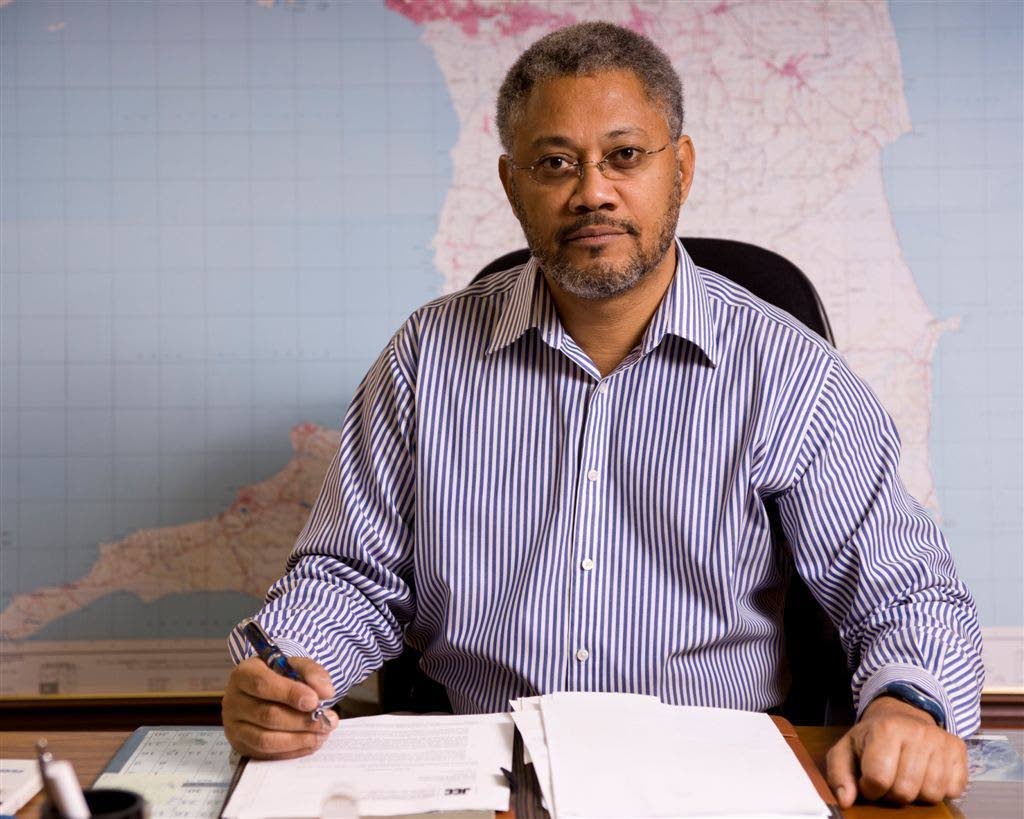Months-old Procurement Act to change – COLM BACKTRACKS ON LAW

LESS than three months after the Procurement Act was passed, Finance Minister Colm Imbert said there is a need to amend the legislation, which took eight years to enact.
Speaking at a virtual media conference on Tuesday, Imbert said the law as is,does not allow for unforeseen circumstances and there is a need to address this through amendments.
The minister called the media conference in response to Opposition MP Saddam Hosein labelling Imbert's exemption for the procurement of goods and services for the recent 45th Caricom summit illegal.
He stressed that the decision was not unilaterally made, as Cabinet would have discussed it and Attorney General Reginald Armour, SC, would have advised him on it.
“One does not rush to make amendments to legislation as controversial as this one. One has to get proper advice on what the reaction would be. It will be a knee-jerk reaction to have an emergency session of Parliament to simply deal with procurement for a foreign affairs event,” Imbert said, when asked why the exemption was not taken to the Parliament.
“What is needed instead, is a properly thought-out, properly advised, well-drafted amendment that would allow government to take action for unforeseen events to provide immediate action and then come back to the Parliament for ratification.”
Imbert said the law had some constraints which are not “fully understood” and that was one of the reasons why amendments are needed.
MINISTER WANTS 2 AMENDMENTS
He added that it is the plan of the Government to return to Parliament in the second half of this parliamentary year to make various amendments to the act. He suggested two: to allow government to act in unforeseen circumstances ;and to have a minimal threshold similar to what accounting officers have to allow the purchase of immediate items such as toilet paper and photocopying machines.
Imbert said the reason for the procurement exemption was because foreign dignitaries, including UN Secretary-General António Guterres, US Secretary of State Antony Blinken, US House of Representatives Democratic Leader Hakeem Jeffries and Rwanda President Paul Kagame, only confirmed their attendance a week or two before the three-day event.
Although there were numerous advertisements calling on service providers who do business with government to register with the office of the Procurement Regulator leading up to the April 26 enacting of the law, Imbert said only 861 are pre-qualified.
He added that based on the information he received, 7,889 suppliers were entered in the system, 861 pre-qualified for all or some of their businesses, 1,086 have pending pre-qualifications, and 32,357 lines of business are pending pre-qualification by public bodies, while 1,079 businesses were rejected.
He said many government departments have tremendous difficulties because their traditional supplies have not gone through the process of pre-qualification.
He said since April 26, a whole group of businesses was out of the system, as many are not up to date with their taxes and are thus disqualified.
“This procurement legislation, theoretically, was a good thing, but now that it is rolling out, it is proving to be very, very difficult to get things going smoothly,” Imbert said.
NO AMENDMENTS NEEDED
Former president of the Joint Consultative Council (JCC) Afra Raymond said the legislation already allows for emergency exemptions, subject to a strict timetable for reporting the contracts, spending and outcomes to the office of the procurement regulator.
Asked if the law in its current form was impractical, Raymond said: “Not at all. The act is a long-overdue measure to protect the interests of all citizens, especially those silenced by their marginal status or the fact that they are not yet present – ie our children and grandchildren.

"The real picture of public contracting is such that the delays detailed earlier today by Minister Imbert are not extraordinary and in fact, we need to ensure that our scarce public money is safeguarded. So this is a vital law.”
During a media briefing hours after Imbert's, Hosein reiterated his earlier position that Imbert had acted illegally, as such exemptions needed to be brought to Parliament before being granted.
Raymond, however, disagreed.
“As written and approved by the Parliament, the 2020 amendments to the act do not require affirmative resolution for these ministerial exemptions. It is my opinion that, strictly speaking, the minister's actions conform to the law.”
Hosein, asked if the Opposition would support the suggested amendments, said until it reaches Parliament, he could not say.
He added that it was Imbert himself who had said in the Senate: “I am pleased to say we have considered that matter and we agree that we can change negative resolution to affirmative resolution.
"So it means that if any additional services are to be added to the list of exempt services, it will require debate and a vote in both Houses of Parliament, including this distinguished House, where we do not have a built-in majority. So that is one of the amendments.”
Hosein added that it was clear that Imbert knew that what was done, is contrary to law.

On Monday, Newsday contacted the office of the Procurement Regulator after Hosein first raised the issue at a UNC press briefing on Sunday.
In response, Stasha Mahabir – executive assistant to the regulator – said: “The chairman/procurement regulator has instructed me to direct you to the Ministry of Finance, as the legal notice originated there.”
Procurement Regulator Beverly Khan was appointed on June 28, after the post had been vacant since January 11. Moonilal Lalchan was the first appointed regulator in 2018 and spent five years waiting for the proclamation of the act.
NOT THE FIRST EXEMPTION
In his media briefing, Imbert said he also signed off on an exemption of goods and services for the Judiciary, which petitioned the AG for such an exemption to facilitate a jury trial that was scheduled to take place at the end of May.
Imbert said the request came as a jury needed to be sequestered and as a matter of confidentiality, the Judiciary asked for an exemption.
Sequestering meant a need for accommodation, transportation, meals and other things for the jurors.
He said since the law was proclaimed only a month before the Judiciary's request, its regular suppliers did not have time to be registered and comply with the law.
“The last thing we would want is to abort a trial. We all know about delays: people have been in Remand Yard for a very long time. There is a lot of litigation about delays," he said.
Both exemptions allow a three-month window in which the procurer will not have to subject itself to rules of the law, which provides for at least two months of vetting, including public advertisement and multiple assessments before selection.
Newsday tried to contact the Judiciary's court protocol and information manager Carl Francis on which case Imbert was referring to, but got no response.
Calls to judicial officers including senior criminal attorneys revealed no pending cases in which a jury needed to be sequestered. The Judiciary's three-month exemption ends on August 29. The courts will be go on its annual break at the end of July.
Hosein also raised the issue of the Judiciary receiving an exemption.
Listing the items under the exemption, he claimed it was not in connection with a sequestered jury trial. Some of the non-sequestered goods and services listed include lawbooks and periodicals, hangman and assistant hangman services, and related goods and services, specialised devices and software, media advertisements and publications required by any law, rules of court or practice directions.

Comments
"Months-old Procurement Act to change – COLM BACKTRACKS ON LAW"